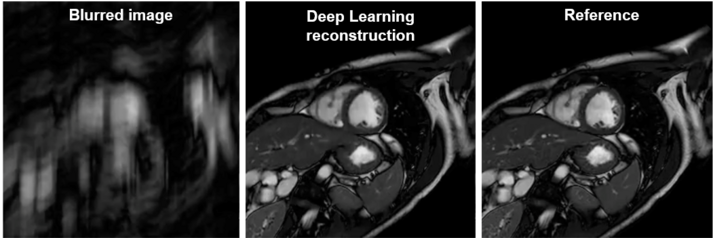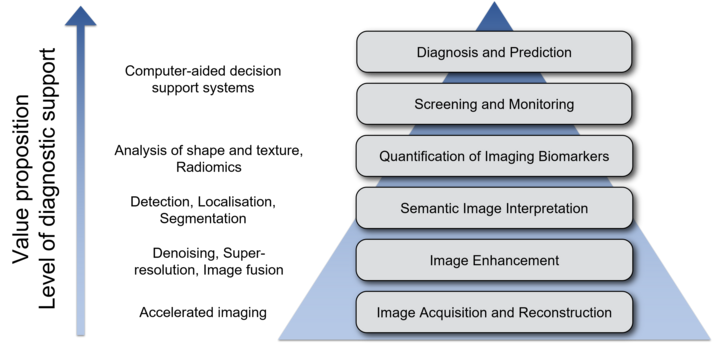Harnessing the potential of medical imaging
Various radiological imaging modalities, including ultrasound, magnetic resonance imaging (MRI), and X-rays, generate datasets that contain more information than overworked radiologists could interpret accurately and proactively.
Prof. Julia Schnabel, Prof. Daniel Rückert and their research teams at Helmholtz Munich and at Klinikum rechts der Isar are spearheading the development of AI algorithms that conduct comprehensive analyses of medical images, enabling the identification of even the most subtle deviations from the norm in a given body region. As more images are fed into these algorithms, their learning capacity grows, resulting in improved classification of medical conditions. Prof. Schnabel and Prof. Rückert are focusing on applications within the realms of cancer, cardiovascular diseases, and neurology. The use of AI-enhanced imaging allows for the early detection of tissue changes, often before a medical condition fully manifests, empowering physicians to intervene promptly and, in some cases, save lives.

Throughout the lengthy journey from the research laboratory to clinical implementation, these scientists rigorously compare their algorithms' performance at each stage of development with outcomes achieved without AI. Subsequently, the algorithms must undergo clinical trials to demonstrate their ability to provide superior or, at the very least, equally accurate diagnoses as human radiologists.

